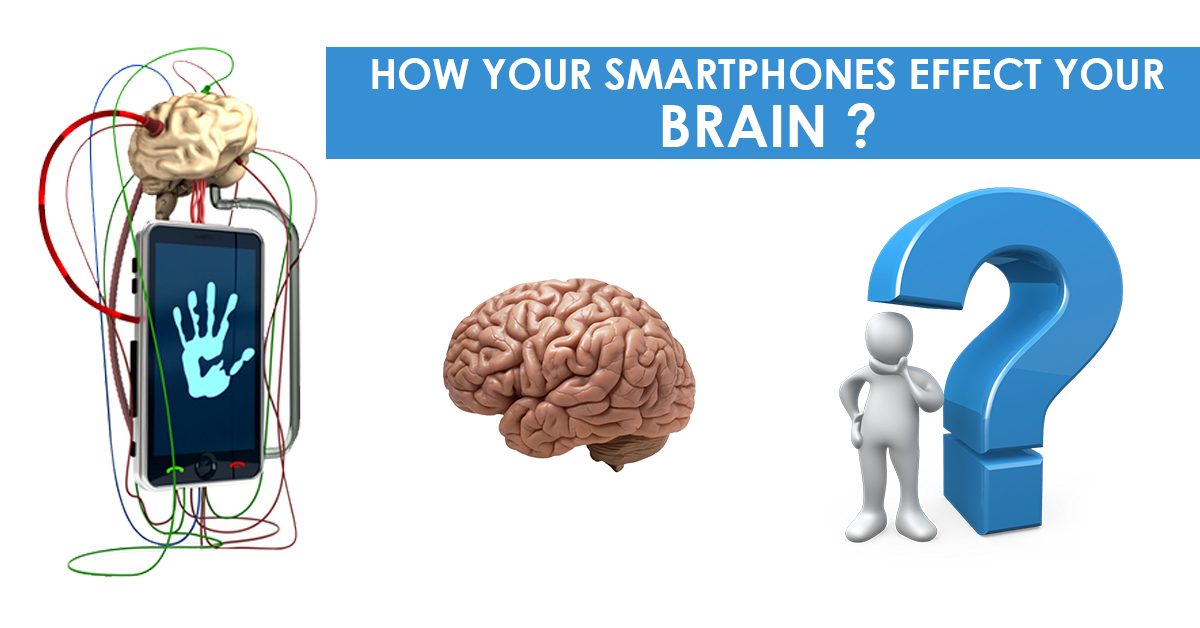
Yes, you read that right! Constantly feeling the need to check your smartphone for every little ping or vibration, has a bulk of side effects added to it. Whether we accept it or not, we all are addicted to our smartphone to a certain extent. Besides having the urge to constantly tend to our smartphones for many reasons, that habit is not making our brains any stronger.
Needless to say, we all know one or many people who have some type of cellphone or smartphone near them at all times. There are people who can perform their everyday task without having a single social interaction, using their phones for every single activity. Understanding this mania for smartphones increasing rapidly every day, scientists and researchers have undergone several types of research and projects revealing astounding findings for a very long time. Studies, tests for smartphone addiction are still being carried out.
MIT professor and social psychologist: Sherry Turkle has discussed several issues regarding this matter, too. Including smartphones in our schedule, in our day to day activity, has changed our habits drastically. We have become intolerant of being alone. The constant need to keep stimulating our brains keeps coming back at us. Our ability to make calm, reflective decisions have been tarnished. Our connection with the technology has also obliterated has our attention span.
The constant stimulation to our brains might have been necessary when we were in the wild, which is not the case now. In order to make rational, proper decisions, we need to calm down which is not something we can do when we have constant pings of messages and notifications. To be constantly stimulated means we’re not fully in touch with our consciousness, and not really equipped to be rational.
Here are a few lines from “Reclaiming Conversation: The Power of Talk in a Digital Age” written by Sherry Turkle-
- “This is our paradox. When we are apart: hyper-vigilance. When we are together: inattention.”
- “Technology enchants; it makes us forget what we know about life… But in our eagerness, we forget our responsibility to the new, to the generation that follows us. It is for us to pass on the most precious thing we know how to do: talking to the next generation about our experiences, our history; sharing what we think we did right and wrong.”
- “Even a silent phone disconnects us.”
- “We miss out on necessary conversations when we divide our attention between the people we’re with and the world on our phones. Or when we go to our phones instead of claiming a quiet moment for ourselves. We have convinced ourselves that surfing the web is the same as daydreaming. That it provides the same space for self-reflection. It doesn’t.”
- “There should be a good rule: A good friend should keep you off of your phone when you are together.”
- “Technology gives us the illusion of companionship without the demands of friendship.”
Maybe it has not been too late. We could all try one day at a time, and detach ourselves from the virtual world that surrounds us. Better late than never!







![Best Gaming Laptops in Nepal Under Rs. 250,000 (रु 2.5 Lakhs) [2025] Best Gaming Laptops Under 2.5 lakhs in Nepal [Feb 2025 Update]](https://cdn.gadgetbytenepal.com/wp-content/uploads/2025/02/Best-Gaming-Laptops-Under-2.5-lakhs-in-Nepal-Feb-2025-Update.jpg)
![Best Gaming Laptops in Nepal Under Rs. 120,000 (रु 1.2 Lakhs) [2025] Best Budget Gaming Laptops Under Rs 120000 in Nepal 2025 Update](https://cdn.gadgetbytenepal.com/wp-content/uploads/2025/05/Best-Budget-Gaming-Laptops-Under-Rs-120000-in-Nepal-2024-Update.jpg)
![Best Laptops Under Rs. 80,000 in Nepal [2025] Best Laptops Under 80,000 in Nepal March 2025 Update](https://cdn.gadgetbytenepal.com/wp-content/uploads/2025/03/Best-Laptops-Under-80000-in-Nepal-March-2025-Update.jpg)
![Best Gaming Laptops in Nepal Under Rs. 200,000 (रु 2 Lakhs) [2025] Best gaming lapotp under 2 lakhs Nepal Feb 2025](https://cdn.gadgetbytenepal.com/wp-content/uploads/2025/01/Best-Gaming-Laptops-Under-2-Lakh-Nepal-Feb-2025-Update.jpg)

![Best Mobile Phones Under Rs. 15,000 in Nepal [Updated 2025] Best Phones Under 15000 in Nepal 2024 Budget Smartphones Cheap Affordable](https://cdn.gadgetbytenepal.com/wp-content/uploads/2024/03/Best-Phones-Under-15000-in-Nepal-2024.jpg)
![Best Mobile Phones Under Rs. 20,000 in Nepal [Updated] Best Mobile Phones Under NPR 20000 in Nepal 2023 Updated Samsung Xiaomi Redmi POCO Realme Narzo Benco](https://cdn.gadgetbytenepal.com/wp-content/uploads/2024/01/Best-Phones-Under-20000-in-Nepal-2024.jpg)
![Best Mobile Phones Under Rs. 30,000 in Nepal [Updated 2025] Best Phones Under 30000 in Nepal](https://cdn.gadgetbytenepal.com/wp-content/uploads/2025/01/Best-Phones-Under-30000-in-Nepal.jpg)
![Best Mobile Phones Under Rs. 40,000 in Nepal [Updated 2025] Best Phones Under 40000 in Nepal 2024 Smartphones Mobile Midrange](https://cdn.gadgetbytenepal.com/wp-content/uploads/2024/02/Best-Phones-Under-40000-in-Nepal-2024.jpg)
![Best Mobile Phones Under Rs. 50,000 in Nepal [Updated 2025] Best Phones Under 50000 in Nepal](https://cdn.gadgetbytenepal.com/wp-content/uploads/2025/01/Best-Phones-Under-50000-in-Nepal.jpg)
![Best Flagship Smartphones To Buy In Nepal [Updated] Best flagship phone 2025](https://cdn.gadgetbytenepal.com/wp-content/uploads/2024/07/Best-Flagship-Phones-who-is-it-ft-1.jpg)